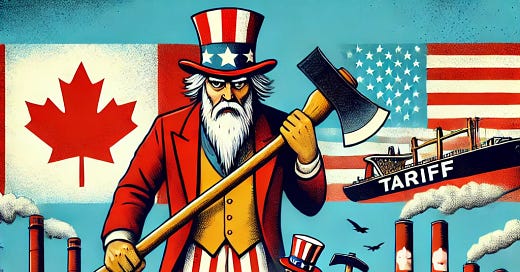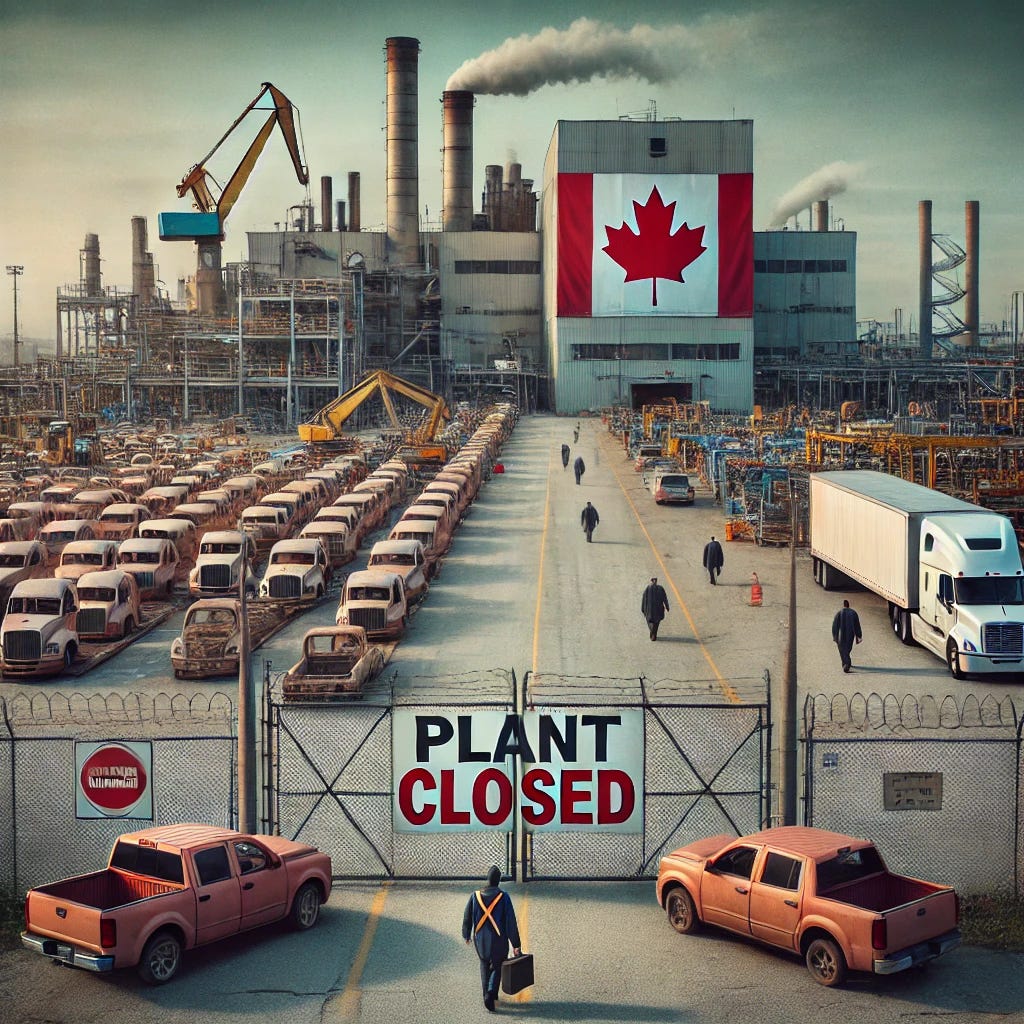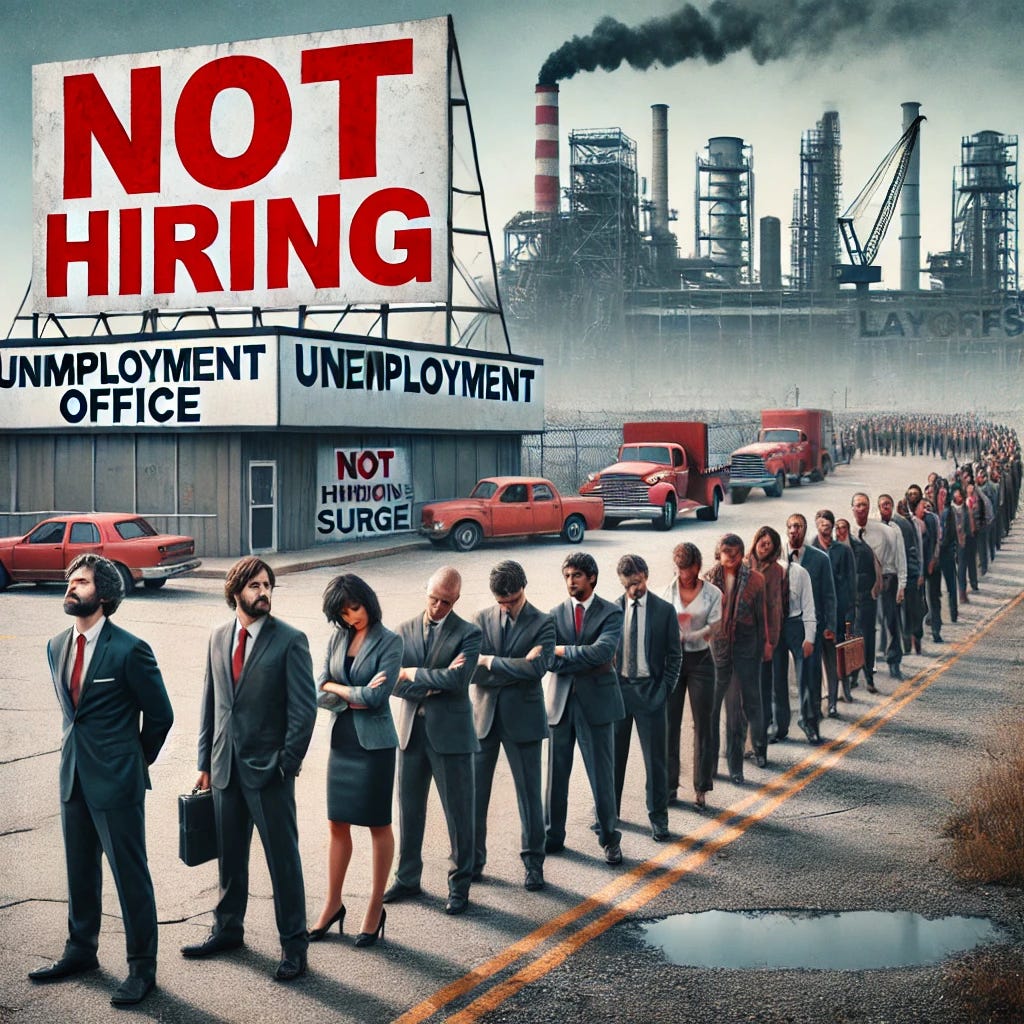Trump’s Tariff Tantrum: What Happens When Canada Fights Back?
We could turn this situation into a massive win!
Just when you thought geopolitics couldn’t get any more ridiculous, Trump decides to slap tariffs on Canada—because, apparently, America’s greatest threat isn’t China or Russia, but the country that supplies it with lumber and oil. And, being the polite but passive-aggressive nation that we are, Canada retaliates with tariffs of our own.
So, what does this all mean for our economy? And more importantly, how does it affect Toronto real estate? Because, let’s be real, that’s what we all actually care about.
The Fallout: Canada’s Resource Industries Take a Hit (Or Maybe Not?)
Let’s talk about who gets whacked first when tariffs start flying. Spoiler alert: it’s the industries that keep Canada’s economy humming. But here’s the twist—if the U.S. doesn’t want our resources, maybe someone else might.
Lumber: The Price of a 2x4 Takes a Wild Ride
Trump loves slapping tariffs on Canadian lumber. It’s practically a presidential tradition at this point. If this escalates, our lumber industry gets hit hard, but at first, we might actually see a temporary price drop locally. With the U.S. suddenly an unviable market for Canadian lumber, suppliers could face a glut of materials, forcing them to offload it domestically at lower prices. For a brief period, developers might see some cost relief—but once inventory balances out, prices will likely shoot back up as supply adjusts. However, if Canada can pivot and find new buyers in Europe or Asia, we could actually end up selling at a premium compared to U.S. pricing.
Steel & Copper: The Backbone of Construction Gets Shaky—Or Does It?
Canada exports a significant amount of steel and copper to the U.S., essential for both infrastructure and real estate development. If tariffs hit these metals, Canadian steelmakers might flood the domestic market with excess supply, temporarily pushing prices lower. However, if the U.S. doesn’t want our metals, China, India, and the EU might be more than happy to step in and buy, potentially at even higher prices. This could turn what initially looks like a crisis into a major opportunity for Canadian producers.
Oil & Natural Gas: Alberta Finds New Friends, If Ottawa Allows It
A tariff war could tank demand for Canadian oil, which mostly gets pipelined to the U.S. Alberta, already skittish after years of political whiplash, might start seriously contemplating a ‘Wexit’ (again). But here’s the kicker—China has already offered to buy our oil, and Europe was practically begging us for liquefied natural gas (LNG). The problem? We refused to sell it to them because Justin Trudeau is a moron who prioritized ideological policies over economic sense. If Canada can finally get out of its own way and start exporting energy to markets that actually want it, we could turn this situation into a massive win.
The Auto Industry: A Complete Wreck
Canada’s auto industry, which is deeply tied to U.S. supply chains, could get decimated in a trade war. With American tariffs making it cost-prohibitive to export Canadian-made vehicles, plants in Ontario could see production cuts, layoffs, and even closures. This would ripple across industries, from manufacturing to transportation, hitting the economy hard.
Potash: Fertilizing New Trade Relationships
Canada is the world’s largest exporter of potash, the essential ingredient in fertilizers. If the U.S. stops buying, other countries like India and Brazil, both massive agricultural powerhouses, could scoop up our supply. The result? A stronger, more diversified trade portfolio for Canada.
Wheat: The Breadbasket Expands Its Borders
Canadian wheat is a global commodity, and while the U.S. is a key buyer, there’s no shortage of other nations that need high-quality grain. If we reroute our wheat exports to countries like China, Japan, and the Middle East, we might not only recover lost sales but potentially secure better trade agreements in the long run.
Gold: The Safe Haven Play
One bright spot? Gold prices tend to rise when there’s uncertainty. Since Canada is one of the world’s biggest gold producers, mining stocks might actually get a nice bump. Bad for trade, good for doomsday preppers and Bay Street investors.
How This Mess Impacts Toronto Real Estate
Here’s where it gets fun (for some, at least).
Construction Costs Could Initially Drop, Then Spike – At first, tariffs might create a supply glut of lumber, steel, and other building materials, briefly bringing costs down for developers. However, if Canada finds new buyers abroad, prices could stabilize or even increase over time, leading to higher construction costs again.
Unemployment Could Surge – With the auto industry taking a hit and the construction sector already struggling, job losses could rise dramatically. This would slow down consumer spending, put pressure on housing demand, and create even more economic uncertainty.
Inflation Means Higher Interest Rates – If a tariff war fuels inflation, the Bank of Canada might be forced to keep rates higher for longer. That’s bad news for anyone hoping for a mortgage rate cut.
Luxury Real Estate Might See More American Buyers – If the U.S. economy wobbles under trade pressure, wealthy Americans and others earning income is US dollars might start stashing their money in Canadian real estate. The high-end Toronto market (think Forest Hill and Bridle Path Boutique Luxury Buildings) could see an influx of U.S. buyers looking for a “safe” asset. This segment is currently strong and resilient, defying the rest of the market.
Recession Fears Could Chill Demand – If a prolonged tariff battle slows down Canada’s GDP growth, job losses could follow, making it tougher for people to qualify for mortgages. That would put a damper on demand, though supply constraints might still keep prices sticky.
Final Thoughts
A trade war with the U.S. might seem like a disaster for Canada’s resource industries and Toronto real estate, but if we play our cards right, it could actually become a golden opportunity. Lumber, steel, copper, oil, wheat, and potash could find new, more lucrative markets abroad. However, the auto industry could be decimated, construction will continue to struggle, and unemployment could surge—making for a very bumpy ride ahead.
Will whoever the heck is running Canada and President Trump resolve their differences? Maybe. But if not, Canadians should buckle up for a wild ride. In the meantime, stock up on Canadian-made goods like French's Ketchup and throw out that bottle of Heinze.







